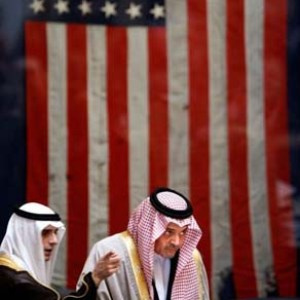Iran-Saudi Arabia diplomatic ties becoming tense
Behind Prince Saud al-Faisal's harsh statements against Iran

Iran-Saudi Arabia ties have turned sour these days following the crisis in Lebanon and remind us of the diplomatic tensions during the early years after the Islamic Revolution of Iran.
With the deterioration of crisis in Lebanon, Iran, stressing the principle of non-interference in other countries' domestic affairs, entered into negotiations with Saudi Arabia to discuss ways to end the strife in Lebanon. However, Saudi Arabia warned Iran of the consequences of its behavior before the talks had even ended.
On Tuesday 13th of May, Prince Saud al-Faisal, Saudi Arabia's Foreign Minister warned Iran that supporting Hezbollah's 'coup' in Lebanon would affect its relations with Arab countries. He also demanded all Middle East countries to respect Lebanon's independence and avoid meddling in its affairs.
Reporting the negotiations between foreign ministers of Arab League, the Lebanese daily newspaper al-Akhbar pointed to an angry exchange between al-Faisal and Yusuf Ahmed, Syria's ambassador to the organization. The fight was ended by Secretary General Amr Moussa.
During the meeting in Cairo, referring to Iran's alleged role in unrests of Lebanon, al-Faisal claimed that the country was "handling the administration of the battle and Hezbollah is trying to impose on Lebanon wilayat-e-Faqih (guardianship of Islamic jurisprudence) and it is upon us to do all that is in our power to stop this war".
In response, Ahmadinejhad hoped that the comments were made out of anger. The Iranian president said that in respect for King Abdullah, Iran wouldn't react to al-Faisal's remarks.
Iran-Saudi Arabia Ties after the Islamic Revolution
Since the establishment of the Islamic Republic, Iran-U.S. ties have witnessed ups and downs that reduce chances for a strategic alliance between the Middle East's most influential states.
Bilateral ties reached its nadir after the 1987 massacre of Iranian pilgrims in Mecca [the Black Friday as called in Iran]. The Saudi police clashed with the Iranian pilgrims while they were holding "Distancing from Pagans" ceremony founded by Ayatollah Khomeini. The event led to expulsion of Mehdi Karroubi, Iran's then parliament spokesman, who was visiting the holy city. Diplomatic relations entered an era of deep freeze afterwards.
This, along with other bones of contention such as Wahhabism, Sunni-Shiite differences, Saudi Arabia's worry over its Shiite population that mainly inhabited oil-rich regions, Saudi Arabia's support for Iraq during its 8-year war with Iran were all legacies inherited by Akbar Hashemi Rafsanjani at the beginning of his presidential term after end of the war in 1988. During his 8 years of presidency, Hashemi yet faced troubled relations and scattered chances to improve the relations were all too flickering.
It was at the last days of Rafsanjani's presidency that the Saudi king invited him to attend the pilgrimage ceremony (hajj). An icebreaker when Rafsanjani had actually no time to accept the invitation as the Iranian president. But after the end of his presidential term as the head of the Expediency Council, Rafsanjani, accompanied by a group of his ministers, visited Saudi Arabia.
Shifts in relations were remarkable during Khatami's presidency. Since détente was prioritized by the Reform government in foreign relations, political tensions between the two countries were reduced to a large extent. The progress was so rapid that even during Khatami's visit to Saudi Arabia, as a sign of friendship and hope for warmer relations, the King Fahd handed Khatami documents of U.S. plan to attack Iran. Following these warm relations, during the Reform era Iran and Saudi Arabia –called 'two wings of the Muslim world'- signed diplomatic, security, military and economic contracts.
However, Iran-Saudi Arabia relations have entered a new phase during Ahmadinejhad's presidency,. Apparently the diplomatic relations are going on with mutual visits and regional cooperation, but Saudi Arabia is truly concerned at Iran's role in regional developments. Although officials in both countries don't want to make differences public, unofficial remarks give credit to rumors of latent political difference.
On top of its concerns, Saudi Arabia is tracing Iran's nuclear activities which for Saudis are in fact another sign of Iran's regional ambitions. With such an outlook, Saudis and their partners deem that Iran –aided by Syria- is trying to spread its influence in Iraq, Lebanon and Palestine to become the dominant power of Middle East. Hezbollah's takeover of West Beirut is part of this strategy according to Saudi Arabia. On the other hand, due to its strategic alliance with United States, Saudi Arabia fears that a likely attack on Iran would plunge the region into another crisis that may impose losses also on Saudi Arabia.
Developments in Iraq and alleged Iran's support for paramilitaries, unrest in Lebanon and the never-ending problem of Palestine are issues that have made Iran-Saudi Arabia relations stormy. However, Iran denies its role in the Lebanese crisis, which is the main cause of Saudis' anger.
In his press conference on 13th of May, the Iranian president Mahmoud Ahmadinejhad stated that "Iran is the only country which doesn’t meddle in Lebanon's affairs". Reacting towards United States accusations against Iran's interference in Lebanon he said: "America doesn’t pay attention to our advices and whenever it faces a problem it accuses others. That's the way they do things".
Iran and Saudi Arabia aren't in good diplomatic terms nowadays. Adopting a policy that avoids further tensions and prevents another period of strained ties looks necessary. Saudis have always been anxious over Iran's regional dominance and it's up to Iran to relieve worries over its position and behavior. Otherwise a negative turn in bilateral ties will also affect relations between Iran and other Arab states.

